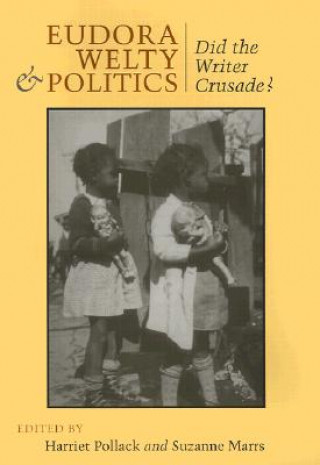
Kód: 11527559
Eudora Welty and Politics: Did the Writer Crusade?
Autor Suzanne Marrs, Harriet Pollack
This collection of complementary and interrelated essays by ten well-known Welty critics brings welcome clarification to the controversial subject of Eudora Welty and the political, a topic once presumed to be closed tight. As the ... celý popis
- Jazyk:
 Angličtina
Angličtina - Vazba: Pevná
- Počet stran: 268
Nakladatelství: Louisiana State Univ Pr, 2001
- Více informací o knize

1568 Kč
Dostupnost:
50 % šance Máme informaci, že by titul mohl být dostupný. Na základě vaší objednávky se ho pokusíme do 6 týdnů zajistit.
Máme informaci, že by titul mohl být dostupný. Na základě vaší objednávky se ho pokusíme do 6 týdnů zajistit.Prohledáme celý svět
Mohlo by se vám také líbit
Dárkový poukaz: Radost zaručena
- Darujte poukaz v libovolné hodnotě a my se postaráme o zbytek.
- Poukaz se vztahuje na celou naši nabídku.
- Elektronický poukaz vytisknete z e-mailu a můžete ihned darovat.
- Platnost poukazu je 12 měsíců od data vystavení.
Informovat o naskladnění knihy
Zadejte do formuláře e-mailovou adresu a jakmile knihu naskladníme, zašleme vám o tom zprávu. Pohlídáme vše za vás.
Více informací o knize Eudora Welty and Politics: Did the Writer Crusade?
Nákupem získáte 157 bodů
 Anotace knihy
Anotace knihy
This collection of complementary and interrelated essays by ten well-known Welty critics brings welcome clarification to the controversial subject of Eudora Welty and the political, a topic once presumed to be closed tight. As the essays prove, Welty has been inaccurately assessed by critics from Diana Trilling in the Nation (1943) to Claudia Roth Pierpont in the New Yorker (1998) as a writer who avoids political, historical, or cultural engagement in her fiction. The better question these essayists explore is not whether but how Welty's work is to be understood as political.Harriet Pollack, Suzanne Marrs, Peggy Prenshaw, Noel Polk, Suzan Harrison, Ann Romines, Rebecca Mark, Barbara Ladd, Sharon Baris, and Daniele Pitavy-Souques place Welty's seeming rejection of the political in her 1961 essay "Must the Novelist Crusade?" into the cultural and historical context of 1940-1960, when "individualism" was a code word for political and personal freedom and was defined in contrast to totalitarianism as represented by Mussolini, Hitler, and Stalin. Welty, they show, though she repudiated the concept of fiction as editorial, wrote stories that were inherently and unavoidably political.The essayists look closely at how surprisingly often Welty's fiction, criticism, and photographs are oblique responses to public political issues -- political corruption, racial apartheid, poverty, McCarthyism and the Rosenberg trials, violent resistance to the civil rights movement, integration of schools, and filial piety and southern reverence for identities of the cultural past. The deceptive opposition of the terms private and political may be most at fault for misreading Welty.As the only livingauthor to be reedited by the Library of America, Eudora Welty deserves a sound appreciation of her complex oeuvre. Eudora Welty and Politics provides just that, approaching Welty's work from an all-new point of view to reveal how the writer repeatedly registered a political vi
 Parametry knihy
Parametry knihy
1568 Kč
- Plný název: Eudora Welty and Politics: Did the Writer Crusade?
- Autor: Suzanne Marrs, Harriet Pollack
- Jazyk:
 Angličtina
Angličtina - Vazba: Pevná
- Počet stran: 268
- EAN: 9780807126189
- ISBN: 0807126187
- ID: 11527559
- Nakladatelství: Louisiana State Univ Pr
- Hmotnost: 531 g
- Rozměry: 226 × 162 × 27 mm
- Datum vydání: March 2001
Oblíbené z jiného soudku
-

Dune
216 Kč -

Haunting Adeline
621 Kč -

Berserk Deluxe Volume 2
1092 Kč -

White Nights
90 Kč -

Powerless
268 Kč -

Atomic Habits
330 Kč -

Dune Messiah
228 Kč -

Berserk Deluxe Volume 3
1142 Kč -

One Day
221 Kč -

Berserk Deluxe Volume 1
1115 Kč -

Iron Flame
368 Kč -

Surrounded by Idiots
213 Kč -

Harry Potter and the Prisoner of Azkaban (Minalima Edition)
993 Kč -

Gravity Falls Journal 3
443 Kč -

Heaven Official's Blessing: Tian Guan Ci Fu (Novel) Vol. 1
440 Kč -

The Creative Act
568 Kč -

Dune
276 Kč -

Hunting Adeline
624 Kč -

A Little Life
290 Kč -

Children of Dune
230 Kč -

Heaven Official's Blessing: Tian Guan Ci Fu (Novel) Vol. 2
427 Kč -

Bungo Stray Dogs, Vol. 8 (light novel)
383 Kč -

Percy Jackson and the Olympians 5 Book Paperback Boxed Set
944 Kč -

Solo Leveling, Vol. 1
440 Kč -
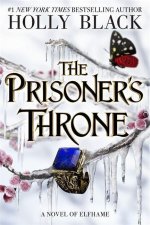
The Prisoner's Throne
247 Kč -

Court of Thorns and Roses
268 Kč -

Cry Baby Coloring Book
276 Kč -
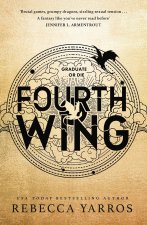
Fourth Wing
405 Kč -

Icebreaker
199 Kč -

Berserk Deluxe Volume 6
1089 Kč -

Avatar, the Last Airbender: The Kyoshi Novels (Box Set)
986 Kč -

The 48 Laws of Power
601 Kč -

House of Leaves
611 Kč -

Twisted Lies
213 Kč -
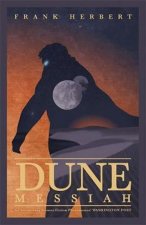
Dune Messiah
272 Kč -

No Longer Human
359 Kč -

48 Laws Of Power
331 Kč -

Twisted Games
213 Kč -

Caraval Paperback Boxed Set
902 Kč -

Solo Leveling, Vol. 2
468 Kč -

Open Circuits
907 Kč -

Berserk Deluxe Volume 5
1119 Kč -

Heaven Official's Blessing: Tian Guan Ci Fu (Novel) Vol. 3
476 Kč -

Berserk Deluxe Volume 4
1292 Kč -

Court of Mist and Fury
206 Kč -

SOLO LEVELING V08
436 Kč -

English File Upper Intermediate Multipack A (4th)
531 Kč -

CHAINSAW MAN V14
251 Kč -

Before the Coffee Gets Cold
184 Kč
Osobní odběr Praha, Brno a 12903 dalších
Copyright ©2008-24 nejlevnejsi-knihy.cz Všechna práva vyhrazenaSoukromíCookies


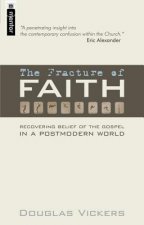


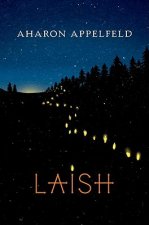


 Vrácení do měsíce
Vrácení do měsíce 571 999 099 (8-15.30h)
571 999 099 (8-15.30h)